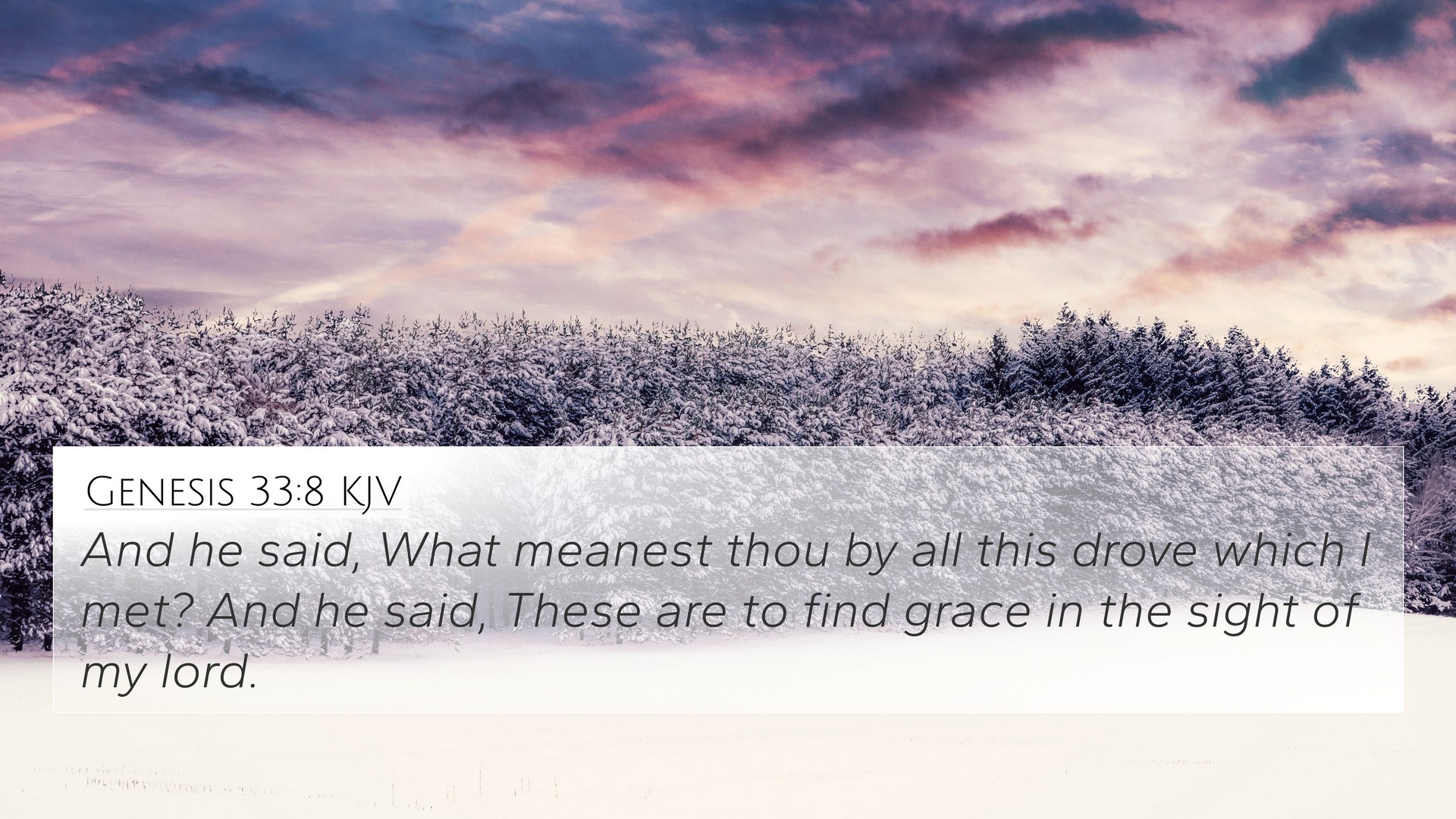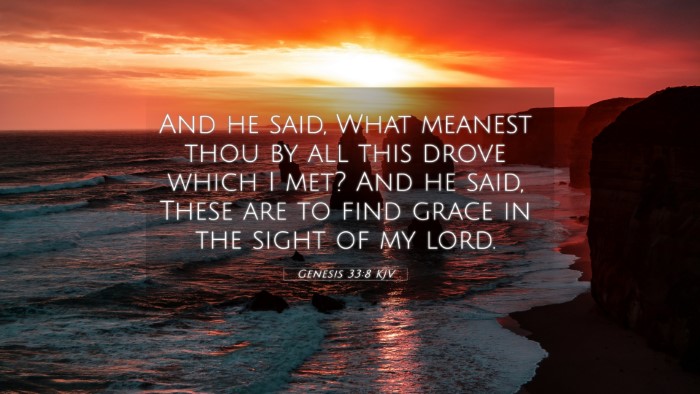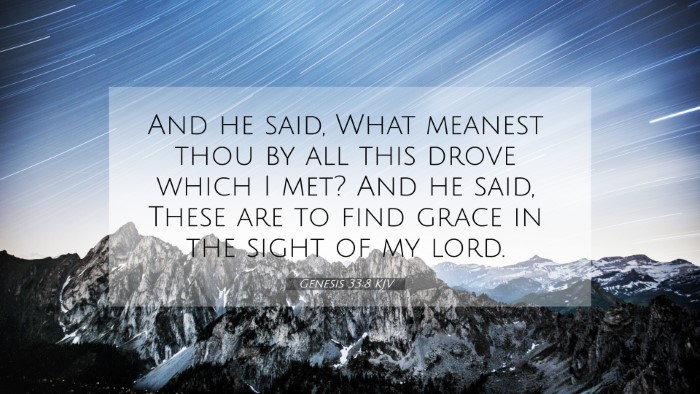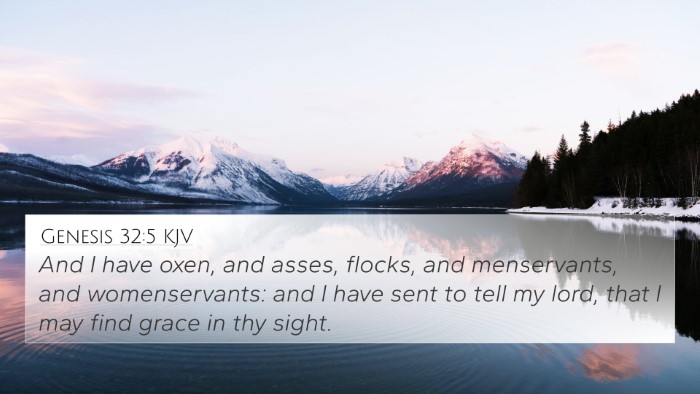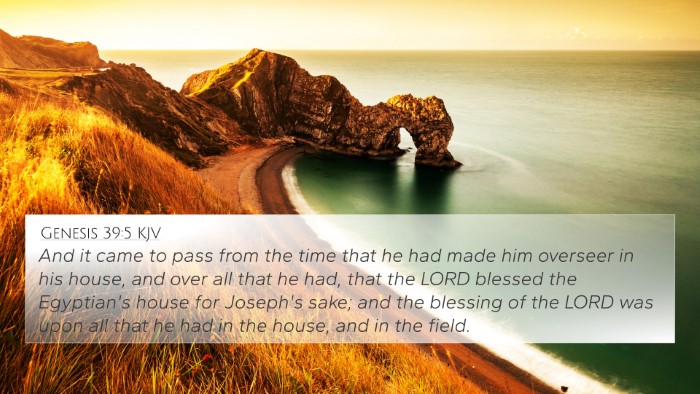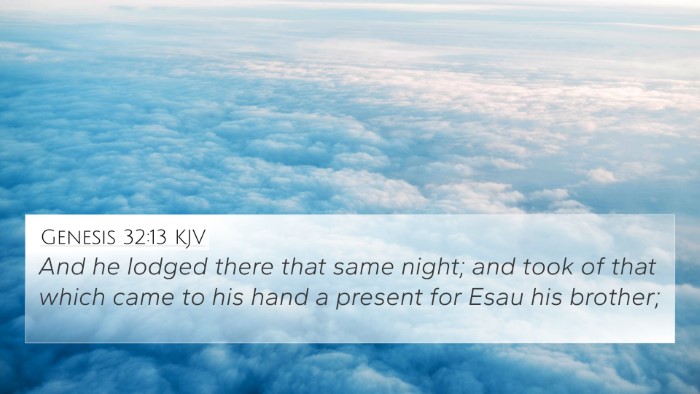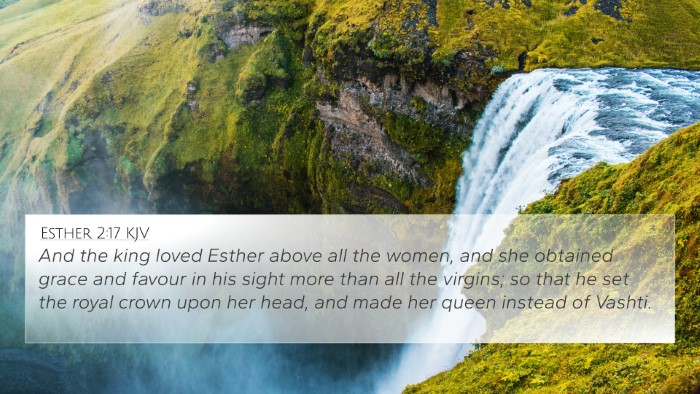Genesis 33:8 - Meaning and Interpretation
Verse: Genesis 33:8 - "And Esau said, What meanest thou by all this drove which I met? And he said, These are to find grace in the sight of my lord."
This verse takes place in the context of Jacob's return to Canaan after years of living in Haran. Jacob is anxious about meeting his brother Esau, from whom he had stolen the birthright and blessing. Esau's response to Jacob’s gifts shows a significant emotional depth and a touch of reluctance yet curiosity regarding Jacob's intentions.
Commentary Insights
Insights from public domain commentaries such as those by Matthew Henry, Albert Barnes, and Adam Clarke provide a rich understanding of this verse:
- Matthew Henry: He notes the humility exhibited by Jacob as he seeks to appease his brother. The "drove" that Jacob sends ahead can be seen as an attempt to find favor and repair the relationship.
- Albert Barnes: Barnes discusses the emotional undertones of the meeting. He highlights the significance of Esau's inquiry about the "drove," indicating a mix of surprise and curiosity at Jacob's wealth and intentions.
- Adam Clarke: Clarke emphasizes the importance of grace in relationships, particularly the concept of finding grace in the sight of others. Jacob lies in his vulnerability and needs to seek forgiveness and reconciliation with Esau.
Thematic Connections
Genesis 33:8 reveals themes of reconciliation, grace, and brotherly relationships. This moment of inquiry from Esau can be seen as pivotal in understanding their relationship dynamic throughout Genesis.
Bible Verse Cross-References
- Genesis 27:36-41: The context of Jacob stealing Esau's blessing, highlighting the history of conflict.
- Genesis 32:24-30: Jacob's wrestling with the angel, which leads to his transformation and new identity.
- Psalm 37:21: The theme of humility and the righteous being given grace.
- Matthew 5:23-24: Jesus teaches about making amends with others before offering gifts at the altar.
- Romans 12:18: Paul encourages believers to live peacefully with all, which resonates with Jacob's actions toward Esau.
- Hebrews 12:16-17: A reference to Esau's lost birthright and the implications of seeking reconciliation.
- 1 John 4:20: Reflects on the necessity of loving our brothers, tying back to Jacob and Esau’s relationship.
Understanding the Verse in Its Context
The context of Genesis 33 is critical for understanding the meaning of this verse. Jacob approaches Esau with gifts as a sign of goodwill, indicating his desire to mend broken ties. Esau's question regarding the "drove" also suggests a deeper inquiry into Jacob's character and intentions.
The response "These are to find grace in the sight of my lord" reflects Jacob’s submission and acknowledgment of Esau’s authority, which contrasts with their earlier rivalry.
Inter-Biblical Dialogue
Genesis 33:8 also serves as a connection point between Old and New Testaments, particularly in themes of forgiveness and grace. The teachings of Jesus in the New Testament build upon these themes, urging believers to seek reconciliation.
Tools for Bible Cross-Referencing
When exploring Genesis 33:8 further, one might use various tools for effective Bible cross-referencing:
- Bible concordance to locate similar themes.
- Bible cross-reference guide for connected scriptures.
- Comprehensive Bible cross-reference materials for deeper studies.
Conclusion
In summary, Genesis 33:8 encapsulates the deeper themes of reconciliation and grace that run through the narrative of Jacob and Esau. The interaction serves as a vital point in the broader context of their relationship and reflects the transformative power of humility and forgiveness.
